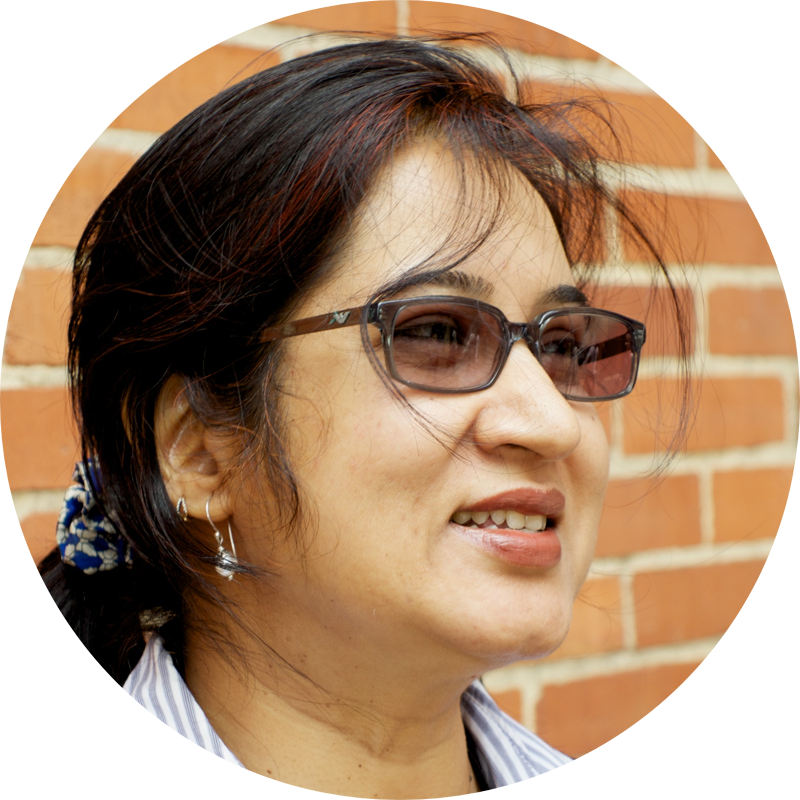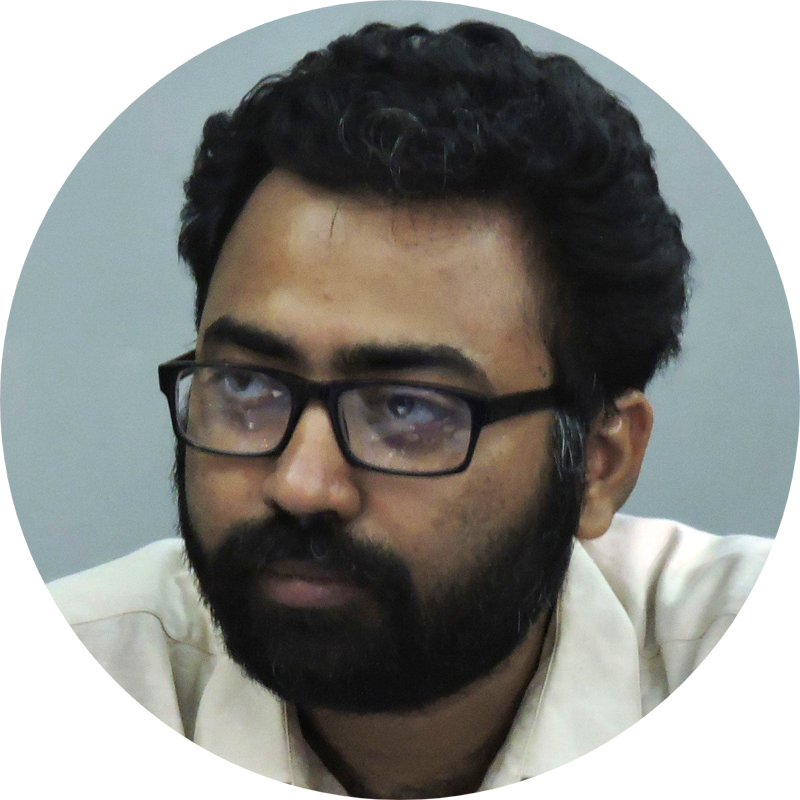RESEARCH AND ORIENTATION WORKSHOP ON FORCED MIGRATION
Fifth Annual Research & Orientation Workshop
in
Global Protection of Migrants and Refugees
Kolkata, 16-21 November 2020
Module Coordinators
Name & Details of the Coordinators
Module /Working Groups

Nasreen Chowdhory, Assistant Professor, Delhi University
Email: nasreen.chowdhory@gmail.com
Bionote: Nasreen Chowdhory teaches in the Department of Political Science, University of Delhi. She has a PhD in Political Science from McGill University, Canada; her Masters and MPhil degrees from Jawaharlal Nehru University, New Delhi. She has published several research papers in national and international peer-reviewed journals, and guest edited a special issue on “Displacement: A ‘state of exception’” in the International Journal of Migration and Border Studies, 2016. Some of her significant publications include Refugees, Citizenship and Belonging: A Contested Terrains (Springer 2018) and an edited volume on Deterritorialized Identities and Transborder Movement in South Asia with Nasir Uddin with Springer 2019. Citizenship, Nationalism and Refugeehood of Rohingyas in Southern Asia co-edited with Biswajit Mohanty, Springer 2020, She is presently working on two edited volumes on Gender, Identity and Migration in India (Palgrave 2020, forthcoming) with Prof. Paula Banerjee. She is an Executive member of International Association for the Study of Forced Migration and of Mahanirban Calcutta Research Group, Kolkata.
Module A: Global protection of refugees and migrants with emphasis on protection in the time of a pandemic

Samata Biswas, Assistant Professor , The Sanskrit College and University
Email: bsamata@gmail.com
Bionote: Samata Biswas teaches English at The Sanskrit College and University. Before this she had taught English literature at Haldia Government College and Bethune College. Her doctoral dissertation concentrated on the body cultures of contemporary India and public health; and she has completed a project on alternative logistical frameworks as created by migrant women in Haldia, funded by Western Sydney University. She is currently engaged in mapping Kolkata as a sanitary city, historically built upon caste-specific migrant labour, negotiating with questions of access or the lack thereof. Her research and teaching over the last few years has developed a specific interest in literature and migration: at the SCU she focuses on slavery, ecological migration and the partition etc. Samata is a member of the editorial board of Refugee Watch and runs the blog Refugee Watch Online. Her co edited volume Situating Social Media: Gender, Caste, Solidarity, Protest has just been published by Women Unlimited.
Module B: Migrants and the epidemic: Gender, race, and other vulnerabilities


Arup Kumar Sen, Associate Professor, Serampore College
Email: arupksen@gmail.com
Bionote: Arup K. Sen is an Associate Professor, Department of Commerce, Serampore College, West Bengal, India. He is a member of Calcutta Research Group. He earned his doctorate at the University of Calcutta and has published on Indian labor history primarily for Economic & Political Weekly (EPW), the leading scholarly weekly in India. His work includes: “The Gandhian Experiment in Ahmedabad: Towards a Gramscian Reading,” “Capital, Labour and the State: Eastern and Western India, 1918–1939,” “Marxism and Labour History,” and “Mode of Labour Control in Colonial India.” He regularly writes in Mainstream Weekly. He has also contributed to Ours to Master and to Own (Haymarket 2011), New Forms of Worker Organization (PM Press 2014) and The Three Worlds of Social Democracy (Pluto Press 2016). Currently, he is working on land grabs and people’s resistance in India.
&
Iman Mitra, Assistant Professor, Shiv Nadar University
Email: imanmitra@gmail.com
Bionote: Iman Mitra is an Assistant Professor in the Department of History at Shiv Nadar University. His research interests include History of the economic discipline; Economic History and Political Economy of South Asia; Urbanization, migration practices and the informal economy in South Asia; State and non-state networks of dissemination of economic knowledge, especially in colonial and postcolonial contexts; Relation between economic rationalities and governmental reason. His recent publications are Accumulation in Postcolonial Capitalism (Co-edited with Ranabir Samaddar and Samita Sen),2016; “Marx’s theory of Rent: A “Speculative” Reading” in Achin Chakraborty, Anjan Chakrabarti, Byasdeb Dasgupta and Samita Sen (eds.), ‘Capital’ in the East: Reflections on Marx, 2019.
Module C: Neo-liberalism, migrant labour, and the burden of the epidemic

K.M. Parivelan, Associate Professor, Tata Institute of Social Sciences, Mumbai
Email: parivelan@tiss.edu
Bionote: Dr. Parivelan K.M. is the Chairperson & Associate Professor at Nodal Centre of Excellence for Human Rights Education & Centre for Statelessness and Refugee Studies, School of Law, Rights and Constitutional Governance, Tata Institute of social Sciences. Previously he had served at United Nations Development Programme (UNDP) for facilitating the post-Tsunami recovery and at United Nations High Commissioner for Refugees (UNHCR) and facilitated the voluntary repatriation of Sri Lankan refugees as part of the peace process. He also briefly served at Pondicherry (Central) University, Puducherry and Jamia Millia Central University, New Delhi, respectively.
Module D: Statelessness with emphasis on de facto statelessness and the rightlessness of sections of population

Oishik Sircar, Associate Professor, Jindal Global Law School
Email: oishiksircar@gmail.com
Bionote: Oishik Sircar is Associate Professor, Jindal Global Law School, and Associate Member, Institute for International Law and the Humanities, Melbourne Law School. Oishik completed an LLB from the ILS Law College, Savitribai Phule Pune University, an LLM from the Faculty of Law, University of Toronto and a PhD from Melbourne Law School, The University of Melbourne. In 2015, Oishik served as Junior Faculty at Harvard Law School’s Institute for Global Law and Policy Workshop. As a human rights law researcher and activist, Oishik has worked with Amnesty International and the South Asia Human Rights Documentation Centre and has been closely associated with the sex workers’ and queer rights movements in India, and the Boycott Divestment and Sanctions (BDS) movement against Israeli apartheid globally.
Module E: Legal regimes of protection and the time of the pandemic

Paula Banerjee, Professor, University of Calcutta
Email: paulabanerjee44@gmail.com
Bionote: Paula Banerjee is a professor at the University of Calcutta and a member of the Calcutta Research Group. She is best known for her work on women in borderlands and women and forced migration. She is also the President of International Association For Studies in Forced Migration. She served as the Vice-Chancellor of the Sanskrit College and University. Winner of many awards and accolades, in 2013 she was awarded the Distinguished Fulbright SIR Award and a Visiting Professorship to SUNY, Oswego. Acknowledged as a radical and prolific speaker she has delivered lectures in all five continents. She has been a visiting professor in a number of universities including Helsinki University (Finland), Yunnan University (China) University of Paris 7 (France) and New School, New York (USA) and others.
Module F: Ethics of care, public health, and the migrants and refugees
